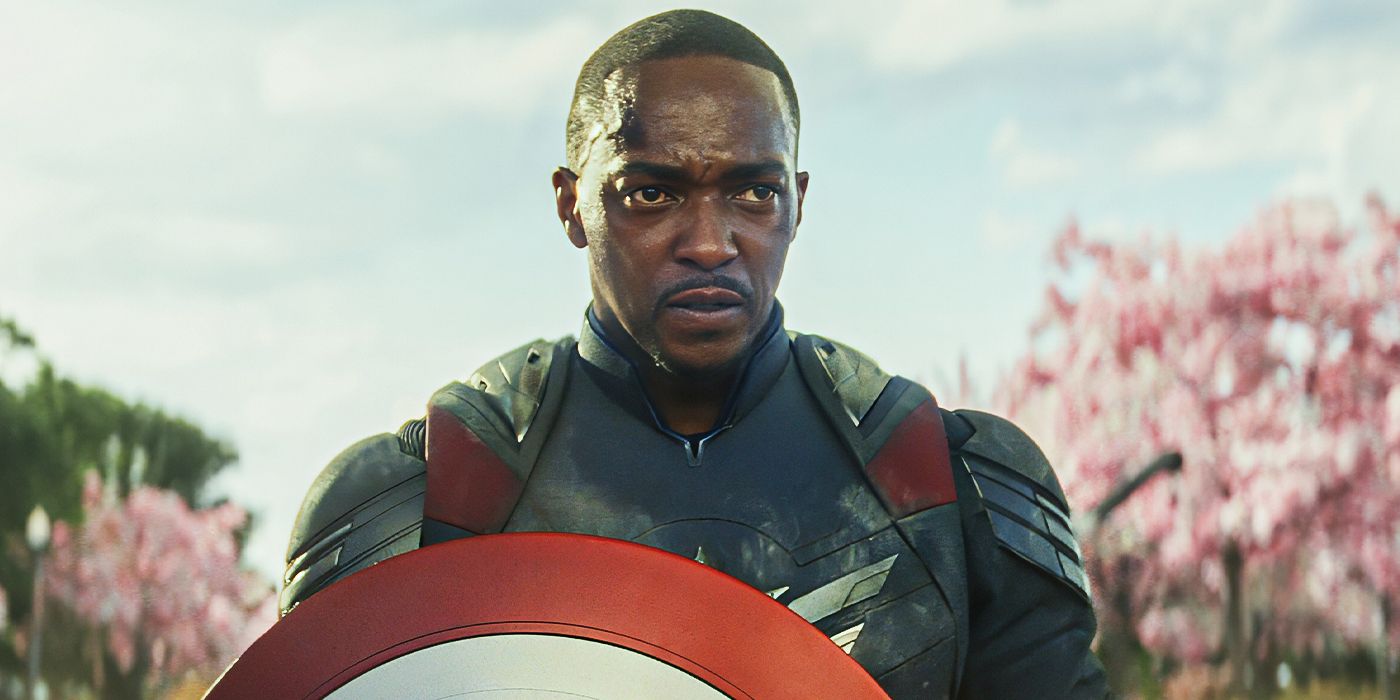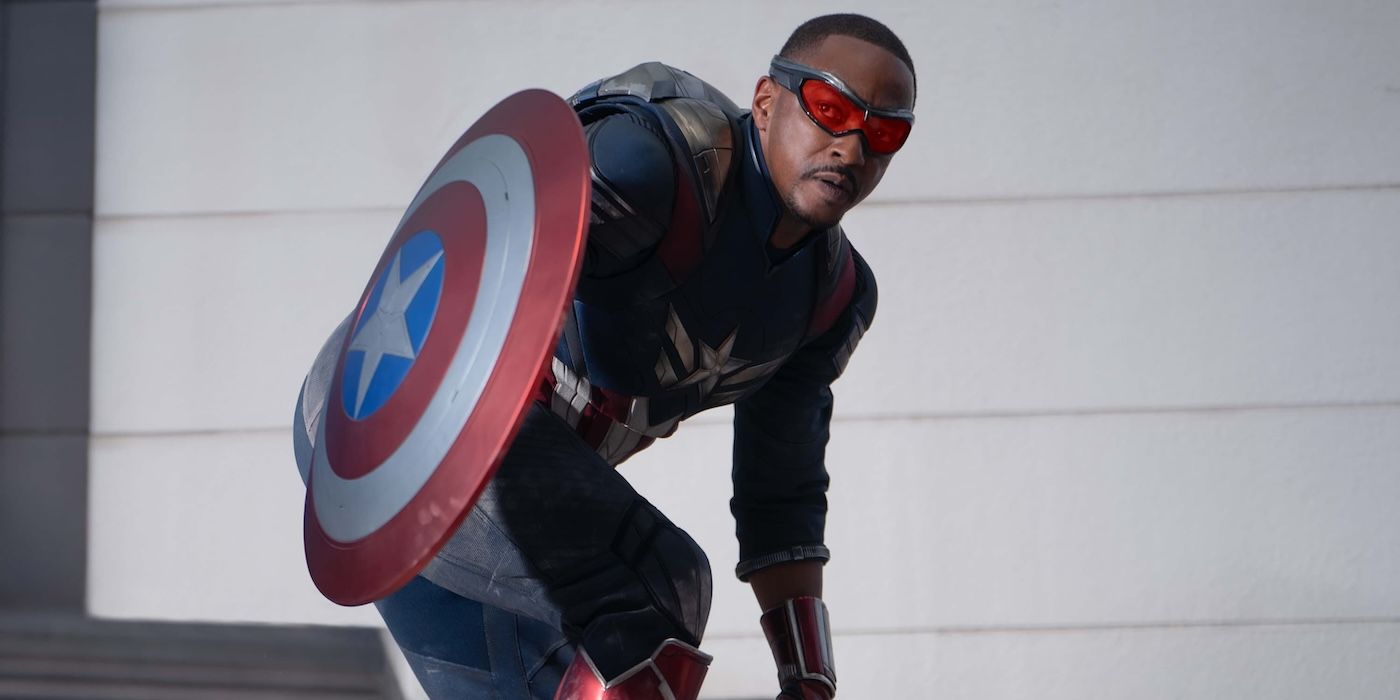Despite featuring several emotional scenes and delivering a moderate success for the MCU, Captain America: Brave New World is a film held back by its well-documented flaws. Between neglecting the character development of Anthony Mackie‘s Captain America and not taking full advantage of Red Hulk’s (Harrison Ford) powerful potential, Marvel’s first major release of 2025 fell flat in several ways. With the film’s recent release on streaming, however, it’s more apparent than ever that one of the reasons Brave New World feels so underwhelming stems from its handling of the Leader, Samuel Sterns (Tim Blake Nelson). While Mr. Blue’s reappearance is long overdue after being teased at the end of The Incredible Hulk, Sterns’ role in Brave New World is ultimately frustrating because it suffers from a recent villain trend undermining the MCU.
Recent MCU Entries Have Struggled to Sympathize With Their Antagonists
Time and time again, compelling villains have been the MCU’s secret weapon. While DC suffered misstep after misstep throughout the 2010s, effectively floating from one underwhelming antagonist to the next, searching for which villain could stick, Marvel challenged its heroes in memorable ways through characters like Erik Killmonger (Michael B. Jordan), Helmut Zemo (Daniel Brühl), and most notably, Thanos (Josh Brolin). These villains didn’t just resonate with fans because they left behind an army of iconic MCU quotes. Rather, each offered a unique and well-defined perspective that clashed with the more mainstream mindsets of Earth’s Mightiest Heroes. Ever since Thanos literally bit the dust in Avengers: Endgame, however, the MCU has seemed more hesitant to connect to its villains’ mindsets, resulting in a series of antagonists that lack emotional depth.
One-dimensional villains aren’t anything new in the MCU, and the franchise’s first few phases in particular definitely suffered from more than a few flat antagonists. What distinguishes this latest batch of antagonists from the one-note character arcs given to characters like Malekith (Christopher Eccleston) and Aldrich Killian (Guy Pearce) is context. Specifically, recent villains like MODOK (Corey Stoll) and Wanda Maximoff (Elizabeth Olsen) have been written with tragic motivations that set them up for rich emotional journeys, only for the MCU to either ignore or water down these characters’ perspectives in favor of a more entertaining, mainstream narrative.
In MODOK’s case, the tragic circumstances surrounding the life of Darren Cross are belittled by the end of Ant-Man and the Wasp: Quantumania. After spending most of the film being abused by Kang the Conqueror (Jonathan Majors), the franchise’s former Yellowjacket experiences his own miniature redemption arc throughout the film, but his final moments are filled with jokes that feel almost cruel when considering just how traumatic Cross’ experiences in the Quantum Realm must have been. Similarly, Doctor Strange in the Multiverse of Madness effectively presents an Uno reverse card to all of Wanda’s character development during WandaVision. After poignantly learning to live with her grief and not endanger more lives for the sake of her family, the second Doctor Strange reduces Wanda to someone literally willing to destroy entire universes for her children’s sake, chalking this reversal up to the power of the Darkhold and filling the film with action sequences that feel hollow in comparison.

Related
Let’s Face It, ‘Captain America: Brave New World’ Failed Sam Wilson
‘Brave New World’ could’ve been a new start and a great introduction to a new Captain America, but instead, it pointed out the flaws in the MCU.
‘Captain America: Brave New World’ Cares More About Legacy Than the Suffering of Its Main Antagonist
Being able to flesh out the nuance and depths of a villain’s psyche is crucial to making a film feel balanced and driving narrative momentum. More than that, however, in a universe as interconnected as the MCU, exploring the layers of compelling antagonists opens up new doors for future installments. Tom Hiddleston‘s Loki is proof of just how much glorious potential a well-written antagonist can offer, but unfortunately, Captain America: Brave New World does Samuel Sterns a disservice comparable to the Scarlet Witch. Throughout the film, it’s revealed that Sterns was imprisoned for sixteen years by Thaddeus Ross (Harrison Ford) and betrayed after being promised a presidential pardon, yet the film never lends serious weight to Sterns’ justifiable outrage.
While the Leader does horrible things in the pursuit of revenge, it’s odd that the film never takes more than a brief moment to sympathize with the man and routinely treats Ross with more reverence. The film’s ending scene at the Raft is the perfect example of this imbalanced narrative focus. While Ross is treated to a sweet cameo by Betty (Liv Tyler) and the signing of a treaty that cements the legacy he’s been chasing, Sam scorns the villain who actually suffered for Ross’ legacy, and the film ultimately uses him to tease Marvel’s multiversal war. Thankfully, the more recent release of Thunderbolts* is proof that the MCU is still willing to do more than neglect its antagonists in favor of entertaining world-building, but with Phase 6 hinting at more villains than ever, Brave New World‘s treatment of the Leader should still serve as a cautionary lesson about what happens when stories allow their villains to suffer in silence.
